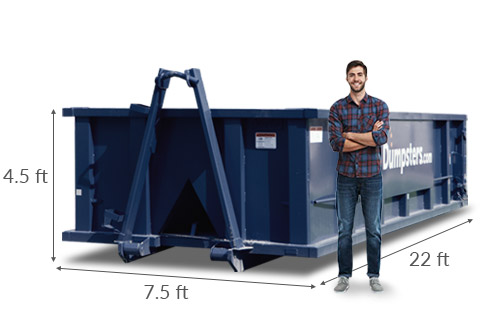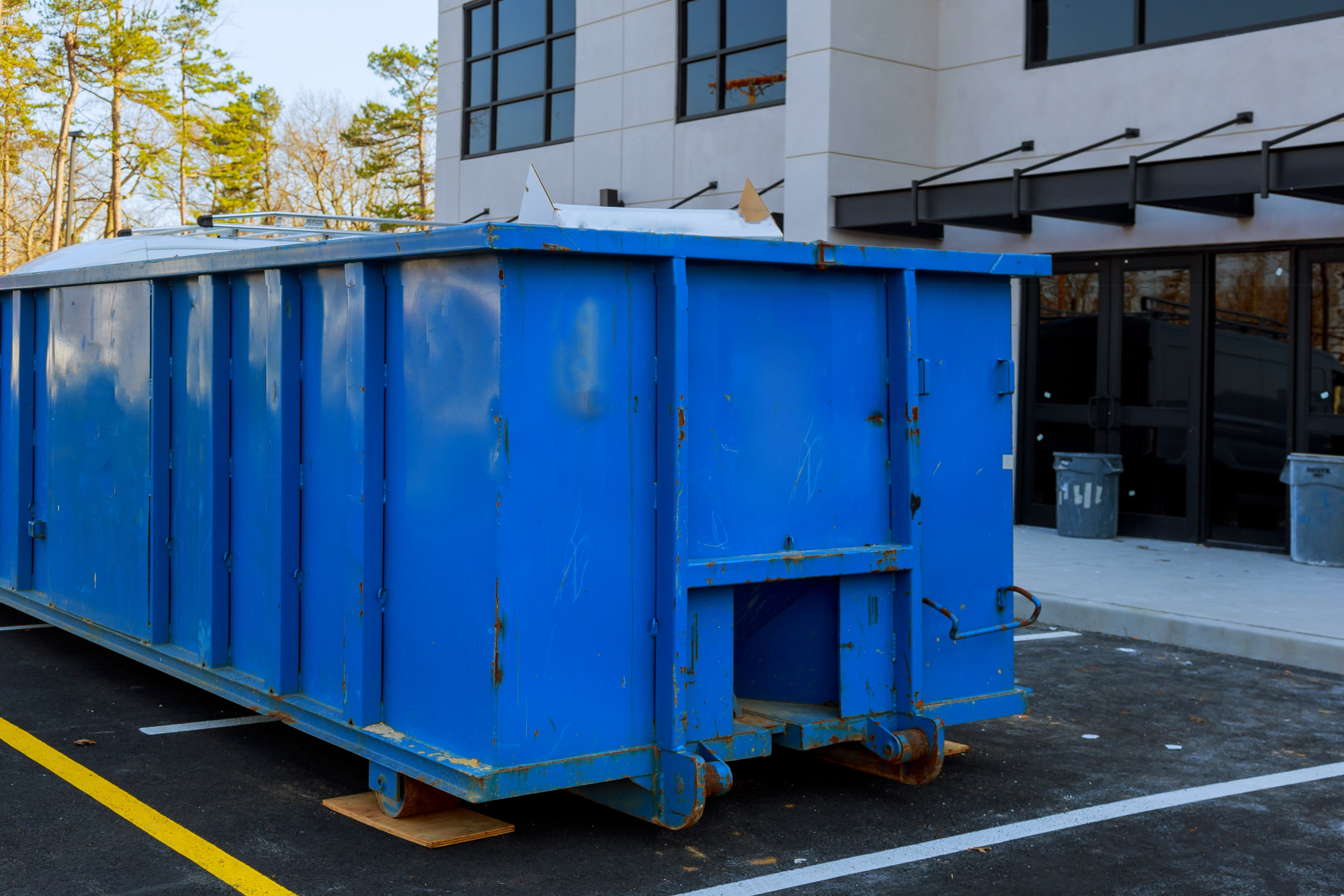When renting out a dumpster, it's important to take into account several crucial factors to guarantee a smooth and cost-effective waste administration procedure. Dumpster dimension and capacity, rental period and scheduling, debris type and restrictions, weight and volume limitations, distribution and pick-up logistics, budget and hidden fees, and local policies and permits are all vital components to analyze. Effectively assessing these aspects can help prevent unneeded costs, boost waste management effectiveness, and prevent task hold-ups. By recognizing these considerations, you'll be well-equipped to browse the dumpster rental process and locate the appropriate service for your certain requirements, and there's more to explore to assure a successful rental experience.
Dumpster Size and Capacity
Key Dumpster Rentals Considerations
Dumpster Size and http://piedmonttriaddumpsters.yousher.com/leading-10-advantages-of-leasing-a-dumpster-for-home-renovations Capacity
Three necessary aspects add to identifying the ideal dumpster dimension and capacity for a job: the type and quantity of waste, the available room for dumpster placement, and the frequency of waste disposal Understanding these elements is crucial to ensure efficient waste management and avoid unnecessary costs.
The type and volume of waste affect the required dumpster dimension, as different materials have varying thickness and weights. For example, construction debris often tends to be much heavier than family trash, requiring a larger dumpster
Available space for dumpster positioning is an additional important factor to consider. Tasks with minimal room may need smaller dumpsters or specialized containers, such as compactors or roll-off dumpsters.
In addition, the frequency of garbage disposal impacts the optimal dumpster dimension and capacity. Jobs with high waste generation prices may require even more frequent emptying, requiring a larger dumpster to accommodate the volume of waste.

Rental Duration and Scheduling
Once the optimal dumpster size and capacity are established, focus turns to the rental period and scheduling This essential aspect of dumpster leasings guarantees that the dumpster is supplied and gotten at the right time, allowing for a seamless waste administration process
When choosing a rental period, think about the period of your project, the amount of waste generated, and the frequency of garbage disposal. Commonly, rental durations range from a few days to several weeks and even months. It is very important to choose a rental duration that lines up with your task's timeline to stay clear of unnecessary extensions or early pickups.
Scheduling is equally vital, as it assures that the dumpster is provided and gotten according to your timetable. Make sure to collaborate with the rental supplier to confirm delivery and pickup days, in addition to any type of particular needs, such as permits or access restrictions
Debris Kind and Restrictions
As the rental duration and organizing are settled, attention shifts to the type of particles that will certainly be dealt with and any linked restrictions.
It's essential to determine what types of waste will be produced during the job, as this will affect the dumpster rental process For instance, hazardous materials, such as batteries, electronic devices, and fluorescent lights, need special delivery and disposal.
Similarly, construction debris, like concrete, asphalt, and dirt, may need to be separated from various other kinds of waste.
Some dumpster rental business may have specific guidelines or prohibitions on specific materials, such as fluids, chemicals, or combustible materials. Understanding these constraints beforehand guarantees a smooth and certified disposal process
Failing to abide by these regulations can cause added charges, fines, and even project delays
Weight and Volume Limits
Beyond debris kind and constraints, another crucial factor to consider in the dumpster rental process is the weight and quantity limits of the dumpster itself. Recognizing these limits is important to assure you don't exceed the allowed capacity, which can result in added fees or even dumpster refusal.
Typically, dumpsters include a specific weight limit, generally gauged in bunches, and a volume limit, measured in cubic yards It is very important to estimate the weight and quantity of the waste you need to dispose of accurately.
For instance, heavy materials like concrete or soil can swiftly exceed the weight limitation, while lighter materials like paper or cardboard may fill up the volume restriction quicker. Make sure to ask your dumpster rental company about their weight and volume limitations and obtain assistance on just how to estimate your waste accurately.
Additionally, some suppliers may use flexible options, such as adjustable weight limitations or specialized dumpsters for certain products. By understanding the weight and quantity limits, you can rent out the appropriate dumpster for your project, prevent unneeded expenses, and assure a hassle-free waste disposal experience
Delivery and Pick-up Logistics
When intending a dumpster rental, it's necessary to consider not just the weight and quantity limits of the dumpster but likewise the logistics of delivery and pickup This consists of taking into consideration the accessibility of the drop-off place, making sure the dumpster can be safely positioned on your property without blocking sidewalks, driveways, or various other areas.
You'll also require to collaborate a certain shipment time that helps you and the rental business. Additionally, think of the length of time you'll require the dumpster and routine a pick-up day accordingly.
Be familiar with any type of prospective restrictions or permits required for dumpster placement in your area. It's essential to communicate plainly with the rental company concerning your particular needs and any kind of challenges you may face.
Budget and Concealed Fees
Cost transparency is essential when it comes to dumpster rental, as it directly impacts your job's profits. It's vital to understand the complete price of the leasing, including any additional costs that may arise.
Be cautious of firms that estimate small cost ahead of time, only to amaze you with hidden fees later. Ask about potential add-ons, such as fuel surcharges, delivery fees, or overweight charges.
When contrasting rates, see to it you're getting an apples-to-apples comparison Some companies may supply a lower base rate but charge added for solutions like same-day delivery or prolonged rental periods.

Others could consist of these services in their preliminary quote. Clarify what's included in the cost and what's not to prevent surprise costs
Lastly, be sure to ask about any type of discounts or promotions that may be readily available. Some business supply unique offers for new clients, long-lasting leasings, or bulk orders.
Local Regulations and Permits
Complying with local regulations and obtaining necessary permits is a critical aspect of dumpster leasing, as failure to do so can result in fines, penalties, and also task delays.
It's essential to research study and understand the specific regulations in your area, as they can vary substantially from one district to an additional. Some cities may need a permit to position a dumpster on a property street, while others may have details rules regarding what materials can be disposed of in a dumpster.
Additionally, some neighborhoods or home owners' organizations may have their own guidelines and regulations relating to dumpster rentals.
Be certain to talk to local authorities and your rental firm to verify you have all needed authorizations and authorizations prior to the dumpster is delivered.